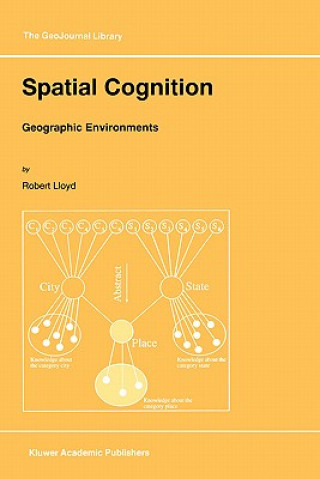
Dostawa
Doradca ds. zakupów
16 125 881 książek w 175 językach







Pokaż wszystkie języki (175)





Jednak się nie przyda? Nic nie szkodzi! U nas możesz zwrócić towar do 30 dni
 Bon prezentowy
O dowolnej wartości
Bon prezentowy
O dowolnej wartości
Bon prezentowy to zawsze dobry pomysł. Obdarowany może za bon prezentowy wybrać cokolwiek z naszej oferty.
Spatial Cognition
 Angielski
Angielski
 467 b
467 b
30 dni na zwrot towaru
Mogłoby Cię także zainteresować


This volume approaches geography as a cognitive science focusing on the processes used for learning and decision-making. This book argues that geographers need a theoretical understanding of how people process spatial information. How people store and use information they have acquired about environments is considered in a variety of geographic contexts. Cognitive theories and connectionist models are related to geographic problems to explain how spatial information is processed. The nature of cognitive maps, the processes used to encode them, and their systematic distortions are reviewed. A perception theory that explains the temporary tracking of environmental objects is considered as well as a theory that explains how verbal and visual information can be combined to create mental models of geographic environments in long-term memory. Other theories are considered that explain visual search processes used to find symbols or boundaries on maps. The processes used to learn spatial categories and prototypes, to create abstract knowledge in basic-level categories, and to judge the similarity of objects are also addressed. Neural networks are discussed throughout the book and used to model learning and classification processes. Audience: This book is directed at researchers and students in geography/social geography, psychology and cognitive science interested in spatial cognition.
Informacje o książce
 Angielski
Angielski




 Jak kupować
Jak kupować


















